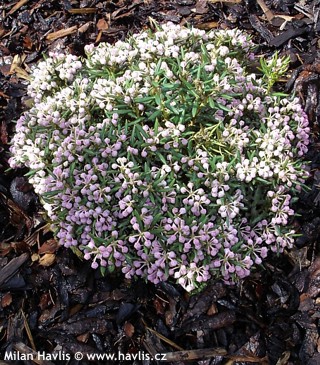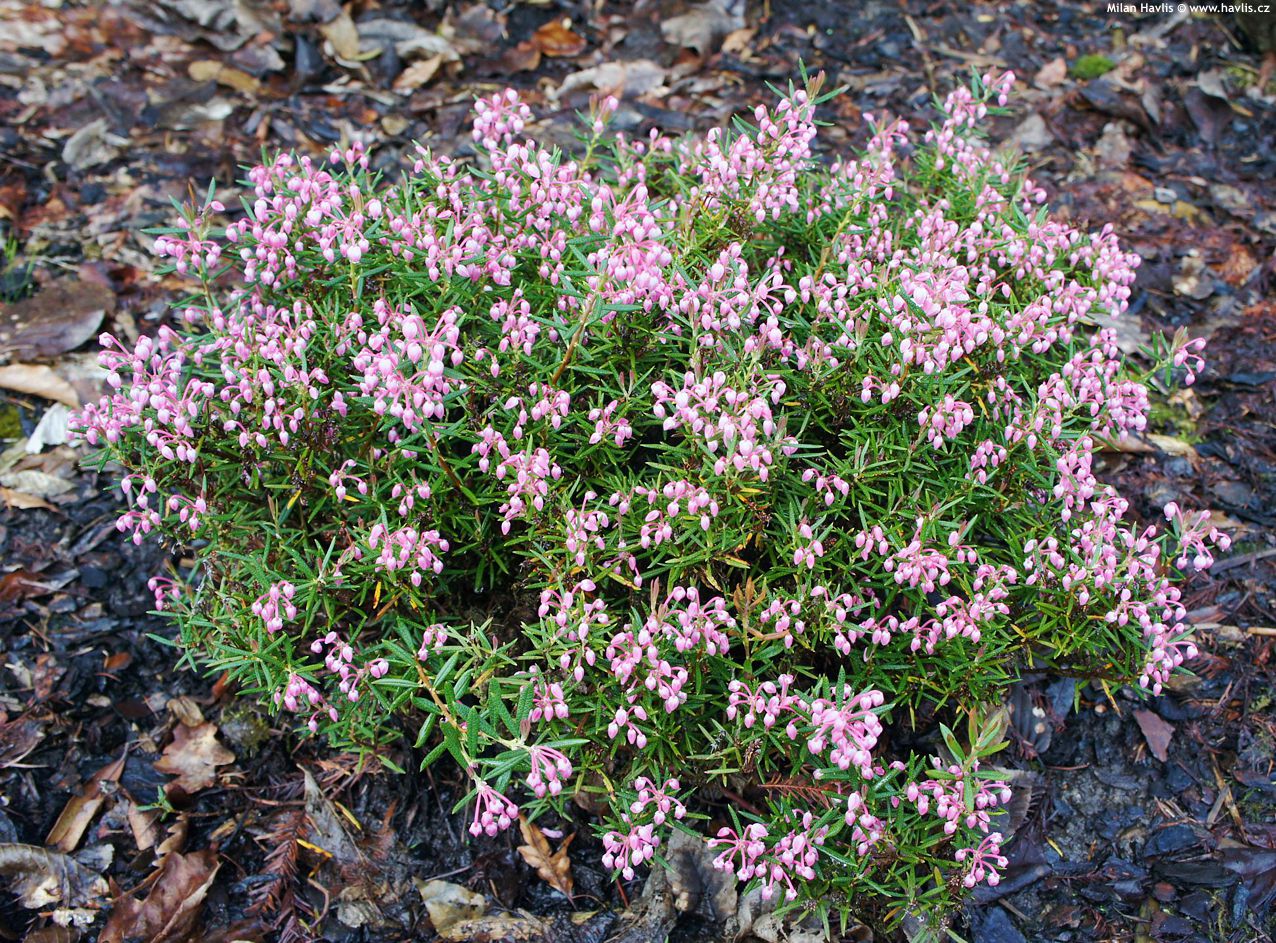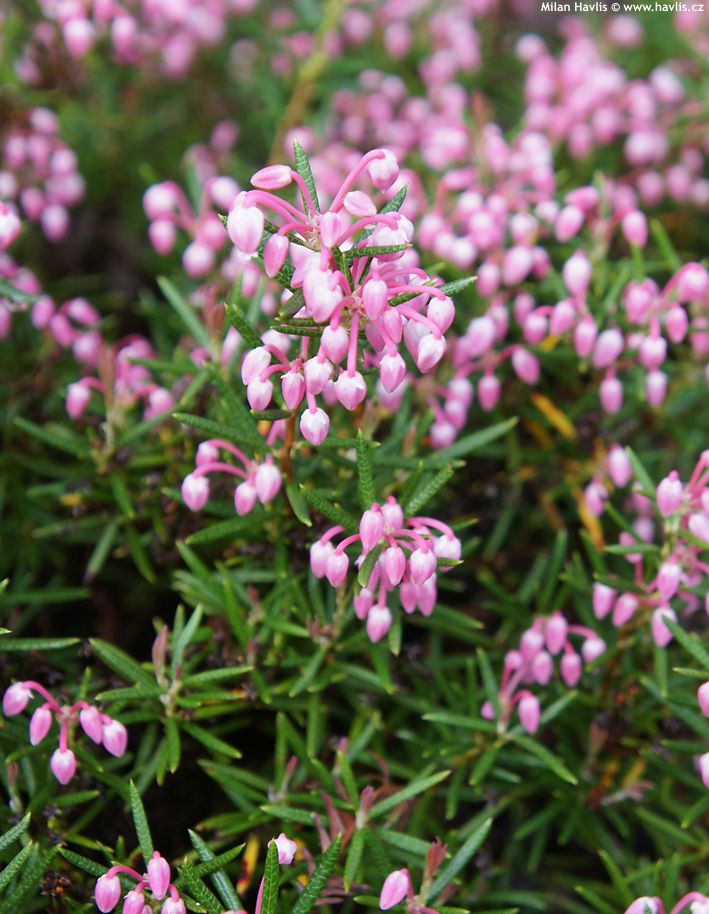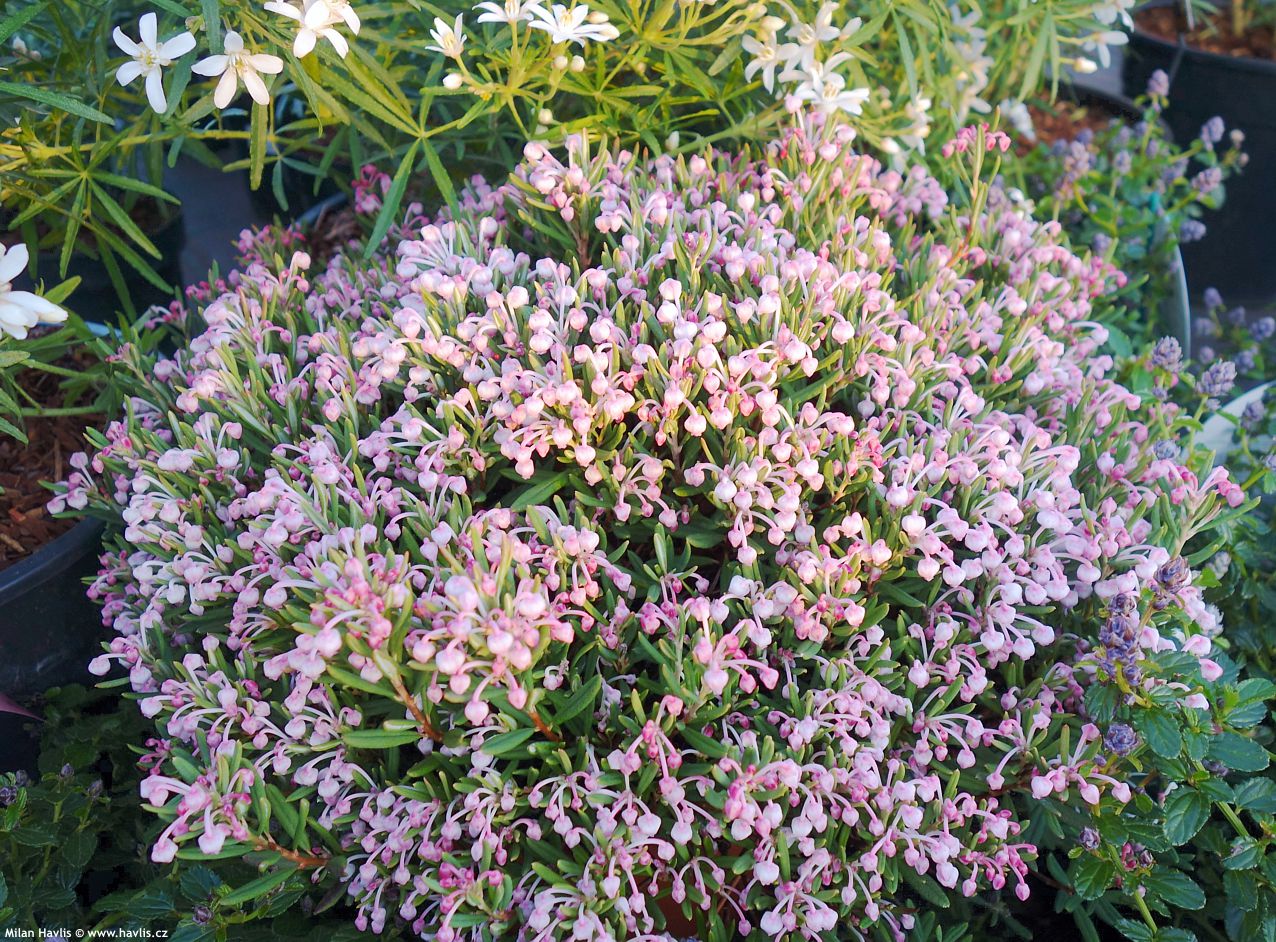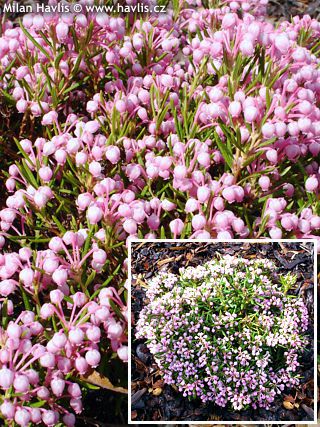Andromeda polifolia 'COMPACTA' bog rosemary
Andromeda
Bog rosemary is a low growing shrub from mountainous parts of Europe and Asia. It comes from moist and wet moors and woodlands. It is one of the few plants that survived Ice Age.
Compacta is a dwarf bog rosemary with green foliage and profusion of light pink flowers. Leaves are rosemary-like, linear-lance-shaped, 2-3 cm long. Urn-shaped flowers are paler than on Nikko variety and appear in abundance from end April until early June. It is a slow grower forming a neat cushion in your ericaceous border.
It loves moist to wet places with humus-rich, cool, and acidic soil. Grow it in constant moisture or even a boggy location in full sun or partial shade. It needs to be mulched as drying out quickly ends up in losing leaves along the stems. Pest and disease free. Extremely hardy to -45°C but dislikes heat over 40°C.
Last update 19-02-2011
Goods are shipped all over Europe. For Russia and U.K. and for further details please read about SHIPPING OPTIONS HERE.
Are you interested in a serious discount for orders NOV-FEB? Check your options here.
THE PRICES INCLUDE VAT of 15%. For quick conversion you can use 1 CZK = approx. 0.04 EUR
- STANDARD QUALITY - Plants of this group are 1st class quality with number of branches and overall density adequate to their size and age, considering they were container grown.
- DE LUXE QUALITY - This label guarantees a luxurious quality of manually selected plants that, compared to their height and age, are exceptionally dense and beautiful.
- EXTRA - These plants are usually mature and bigger specimens with exceptional overall appearance.
- STANDARD (as described in the plant form) means a tree with a trunk of 190-210 cm and a crown at the top, unless specified differently. The commercial size for trees is their girth measured in the height of 1m from ground.
- HOBBY - These plants are of the same quality as our standard-quality plants but younger and therefore cheaper.
- SHRUB - a woody plant with branches growing bushy from the ground level.
- HALF-STANDARD or MINI-STANDARD - a small tree with shorter trunk, its size is usually specified.
- FEATHERED - These are trees with branches growing already from the base of the trunk and up along the stem.
- GRASSES and PERENNIALS - Sizes given usually read the diameter of the pot or the clump, as specified.


































